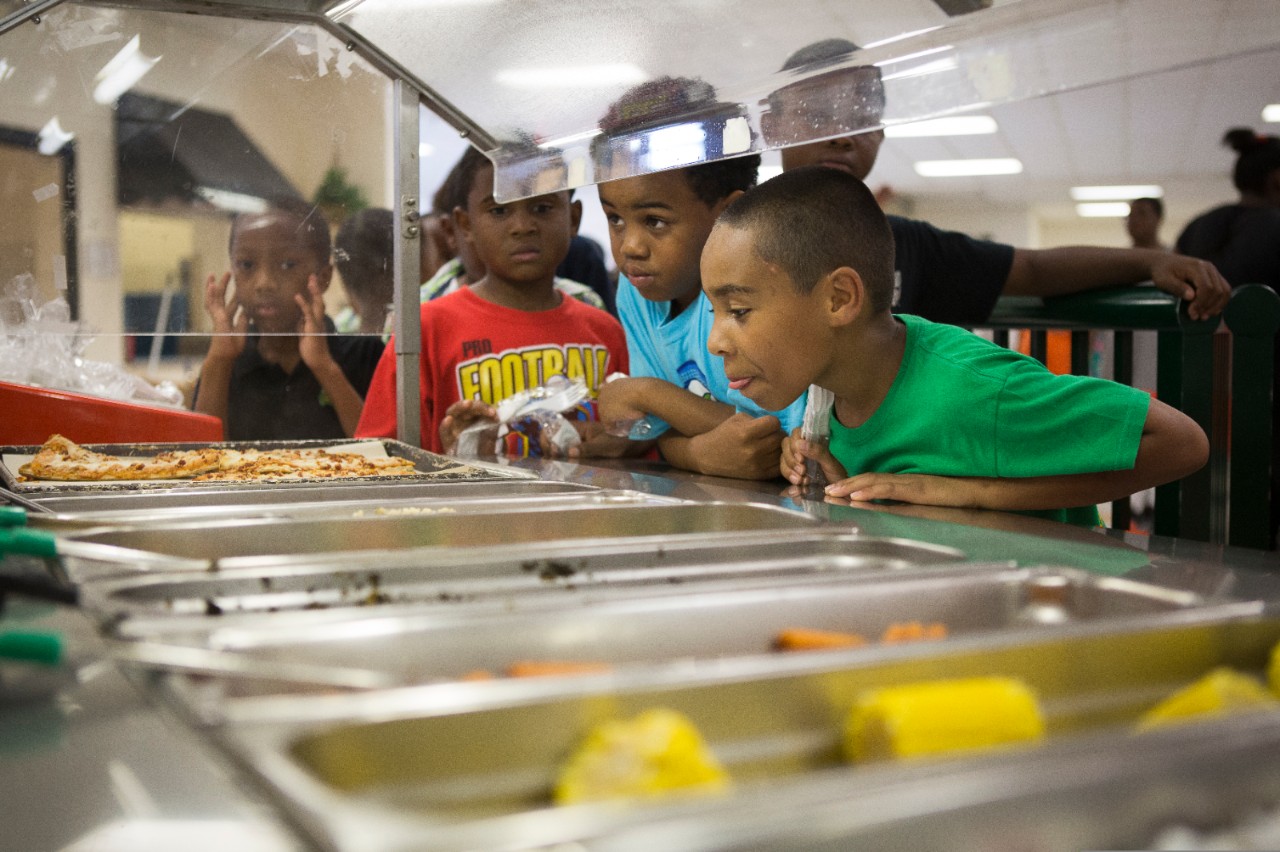Childhood Obesity
The Robert Wood Johnson Foundation worked with leaders from around the country to prevent childhood obesity and help all children grow up healthy.

Every child should be able to grow up healthy, no matter who they are, where they live, or how much their family earns.
But too many of our nation’s policies and systems make it harder for families to access affordable, healthy food and ensure every kid has the opportunity to thrive. Over the course of nearly 20 years, from 2007 to 2025, RWJF committed $1 billion to efforts to prevent childhood obesity. The Foundation worked with and invested in a diverse network of community leaders, researchers, advocates, and policy experts to change policies and systems in ways that would help all children grow up healthy.
While that targeted commitment to prevent childhood obesity has ended, these investments helped spark a national movement, build research collaboratives, launch new initiatives, support community leaders, strengthen nutrition programs, and shift the public conversation to recognize that childhood obesity is a symptom of larger challenges families face in their communities, like poverty and structural racism.
This page provides a history of that long-term effort and highlights what we have learned while working alongside our partners, grantees, and those closest to these challenges.
Explore our most recent data, research findings, policy recommendations, and stories in our archive of State of Childhood Obesity reports.
Explore key moments, news, and policy wins from the last 20 years of the collective effort to prevent childhood obesity.
-
2001
- U.S. Surgeon General issues a Call to Action to Prevent and Decrease Overweight and Obesity, declaring obesity an epidemic and recommending changes from the individual to the policy level to support healthy eating and physical activity.
-
2004
- RWJF, Time Magazine, and ABC News host a Summit on Obesity, bringing together leaders from research, healthcare, policy, industry, news media, and the public to address the obesity epidemic and propose solutions.
-
2007
- RWJF commits $500 million to reversing the childhood obesity epidemic.
-
2009
- The WIC food package is updated to better align with the Dietary Guidelines for Americans, changes later cited as possibly contributing to declining obesity rates among children participating in WIC.
-
2010
- First Lady Michelle Obama creates Let’s Move!, a national initiative dedicated to solving the problem of obesity within a generation.
- Congress passes the Healthy, Hunger-Free Kids Act, the first update to nutrition standards for school meals and snacks in more than 15 years, affecting 50 million children daily at 99,000 schools.
-
2013
- RWJF and the American Heart Association launch Voices for Healthy Kids, funding state and local campaigns that go on to achieve 142 policy wins reaching more than 167 million people in under five years.
-
2015
- RWJF commits an additional $500 million to address childhood obesity over the next decade, with a focus on reducing disparities. At the announcement, First Lady Michelle Obama said, "While I might get a lot of credit for what we’ve done through Let’s Move!, I know that Let’s Move! couldn’t even exist if it weren’t for RWJF’s leadership.”
-
2019
- A comprehensive analysis published by USDA shows that nearly all schools are meeting the updated nutrition standards and that meals are healthier than they were before the updates.
- The CDC announces declines in obesity rates among young children enrolled in WIC from 2010 to 2016. Another study estimates that updates to WIC contributed to a 2% reduction in the child poverty rate by 2019 compared to what the rate would have been without WIC.
-
2020
- School meals are provided to every student free of charge to help feed children during the COVID-19 pandemic. Providing healthy school meals for all is found to improve schools’ budgets and students’ participation in the program, food security, health, and academic performance.
-
2022
- The White House hosts the first Conference on Hunger, Nutrition, and Health in 50 years and releases a national strategy to end hunger and diet-related diseases in the U.S. by 2030.
-
2023
- Eight states enact universal school meals, and USDA launches SUN Bucks—a program providing free meals to students over the summer—to participating states. These major policies provided free, healthy food to millions of kids across the country.
-
2025
- RWJF funds $20 million in new grants to nine organizations working to address structural racism in food and health systems, fill gaps in research, and collaborate with communities most impacted by childhood obesity and food insecurity.
Learn more about key policies that can support access to healthy food for children and families.
Hear families' stories about how SNAP has impacted their lives.
These Friends are Making Healthy Food Accessible to Families Participating in SNAP
SNAP Supports this Texas Family Following their Military Service
Michigan Farmers and Veterans Support Families Participating in SNAP
SNAP Kept this Kansas Family Going After Father Lost his Job
SNAP Helps this Michigan Family Access Healthy Food
SNAP Helped this Kansas Mom Leave an Abusive Relationship
SNAP Helped this Alabama Mom Graduate College & Give Her Daughter a Healthy Start
SNAP Enables this Busy Alabama Mom to Provide for Her Young Family
Read perspectives from community leaders, partner organizations, and Foundation staff on children’s nutrition and health.
Related Content

Childhood Obesity
We must ensure all children are able to grow up at a healthy weight and have a healthy start in life.

School Meals

Nutrition

Supplemental Nutrition Assistance Program (SNAP)
SNAP provides short-term financial support to individuals and families furthest from economic opportunity who struggle to afford food.






